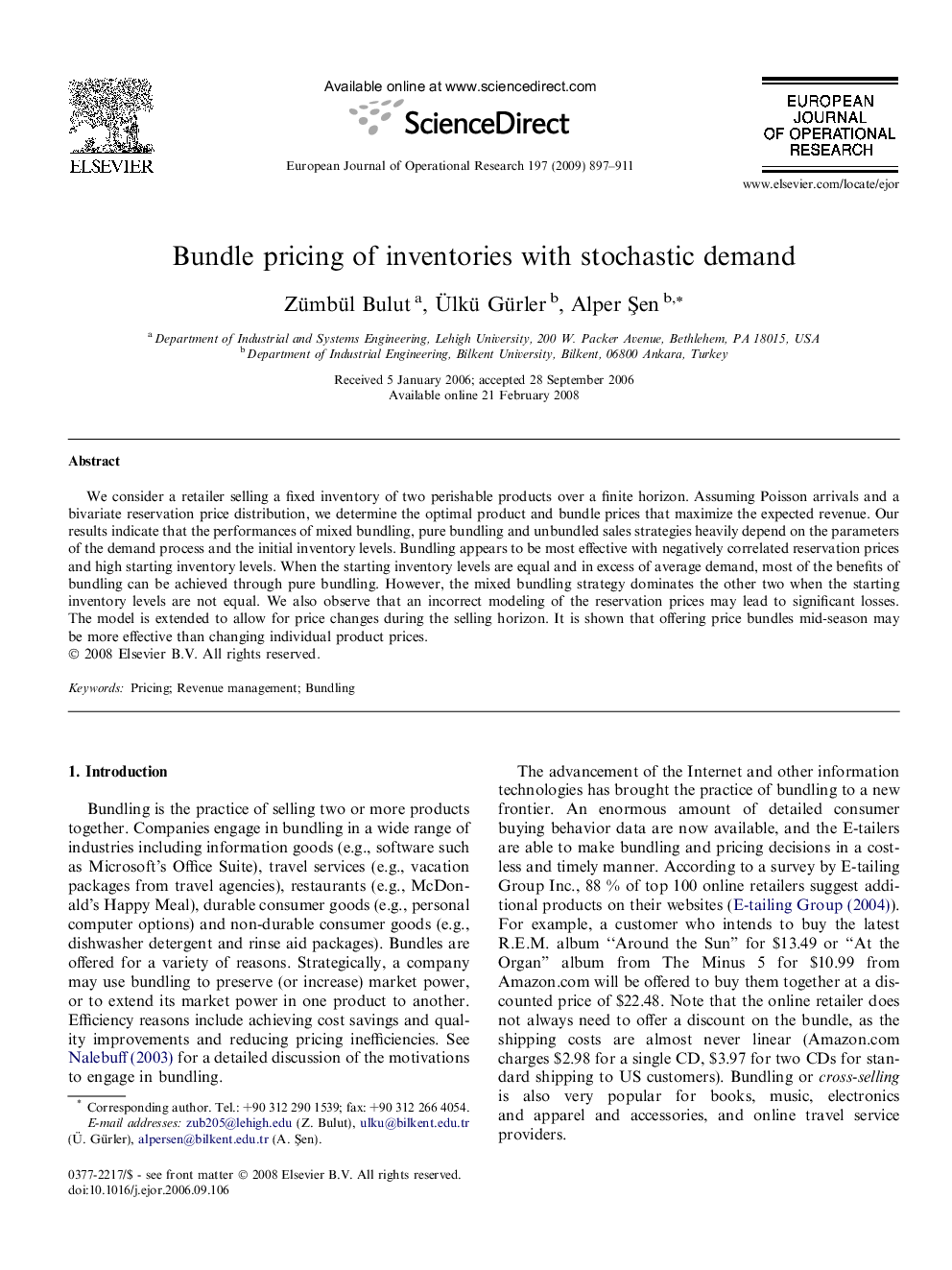| Article ID | Journal | Published Year | Pages | File Type |
|---|---|---|---|---|
| 482616 | European Journal of Operational Research | 2009 | 15 Pages |
We consider a retailer selling a fixed inventory of two perishable products over a finite horizon. Assuming Poisson arrivals and a bivariate reservation price distribution, we determine the optimal product and bundle prices that maximize the expected revenue. Our results indicate that the performances of mixed bundling, pure bundling and unbundled sales strategies heavily depend on the parameters of the demand process and the initial inventory levels. Bundling appears to be most effective with negatively correlated reservation prices and high starting inventory levels. When the starting inventory levels are equal and in excess of average demand, most of the benefits of bundling can be achieved through pure bundling. However, the mixed bundling strategy dominates the other two when the starting inventory levels are not equal. We also observe that an incorrect modeling of the reservation prices may lead to significant losses. The model is extended to allow for price changes during the selling horizon. It is shown that offering price bundles mid-season may be more effective than changing individual product prices.
